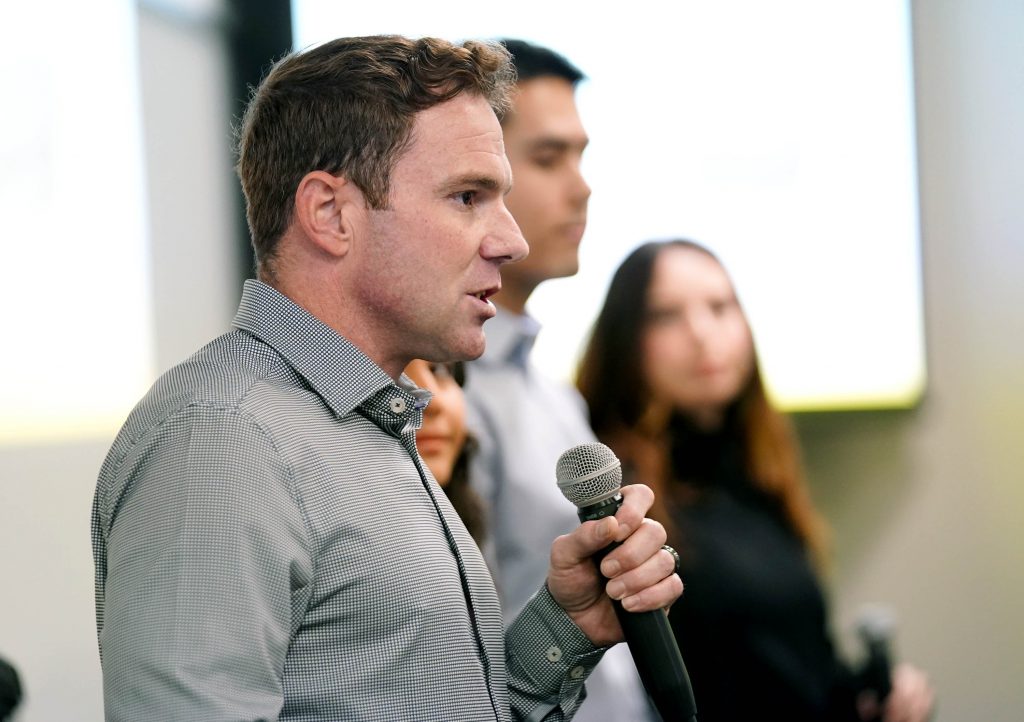
Mindfulness, COVID-19's health effects just 2 of topics presented
Photos by Ralph Freso / Slideshow
Senior psychology major Jeremy Varnadore said he got sober nearly three years ago, and what he found in his recovery eventually led him to the front of a packed classroom at Grand Canyon University with a group of students reporting its research to University leaders and faculty.
His student research group is amid a study, “Mindfulness, Locus of Control and Stress,” looking at the relationship between them. When a person has an external locus of control, they believe external factors dictate the outcome of their lives; when they have an internal locus of control, they believe they have control of the outcome.
Varnadore and his fellow researchers – Anisa Barbosa, Sean Cuddyer and Janean Mikutis – were one of five student groups who gave presentations Wednesday at the Canyon Undergraduate Research Symposium, featuring research projects, experiential learning and other projects by undergraduates.
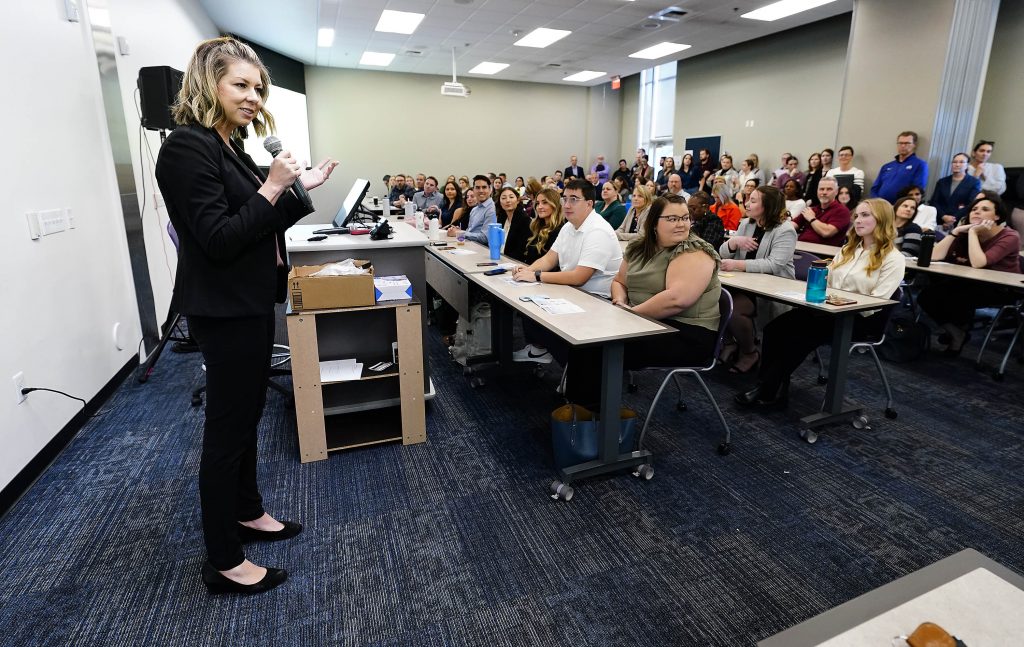
“In my addiction, I was highly external,” Varnadore said afterward. “It was always different things that were the problem. Since I have been a person in recovery, I have more control. And the thing that bridged the gap for me was my mindfulness, my meditation.
“I became more aware of my thoughts and challenged them. I learned discipline. It helped me so much that I became passionate about it... So I had an idea. Let’s test this.”
The group is examining whether the locus of control mediates the relationship between mindfulness and stress among college students. If there is a relationship, the next step is to expand the research to interventions, such as meditation or yoga. The goal in the spring semester is publication in GCU’s Canyon Journal of Undergraduate Research.
“If someone does yoga practice, can they go from external to internal (locus of control)?” Varnadore asked.
Varnadore said he was a professional skateboarder who used that as meditation. When he fell out of the sport, his problems started. But meditation has now helped him focus on his breath and not thoughts.
“I am learning now to focus my attention, learning how to focus my awareness,” he said. “If I have an intrusive thought, I challenge it.
“Life is a series of situations. I pause and ask, ‘How do I want to respond to this?’ ... If I am blaming other people – ‘oh you got me upset, it’s your fault, so I did this’ – then my life is dictated by other people.”
He says the research can be game-changing for people. And it already was for his group’s academic careers. They learned about site authorization and Institutional Review Board approval, framing research questions and collecting and analyzing data.
“This is a really valuable experience for undergrads. It’s not an experience given often with individuals at our level; this is usually at the doctoral level,” student researcher Mikutis told the group.
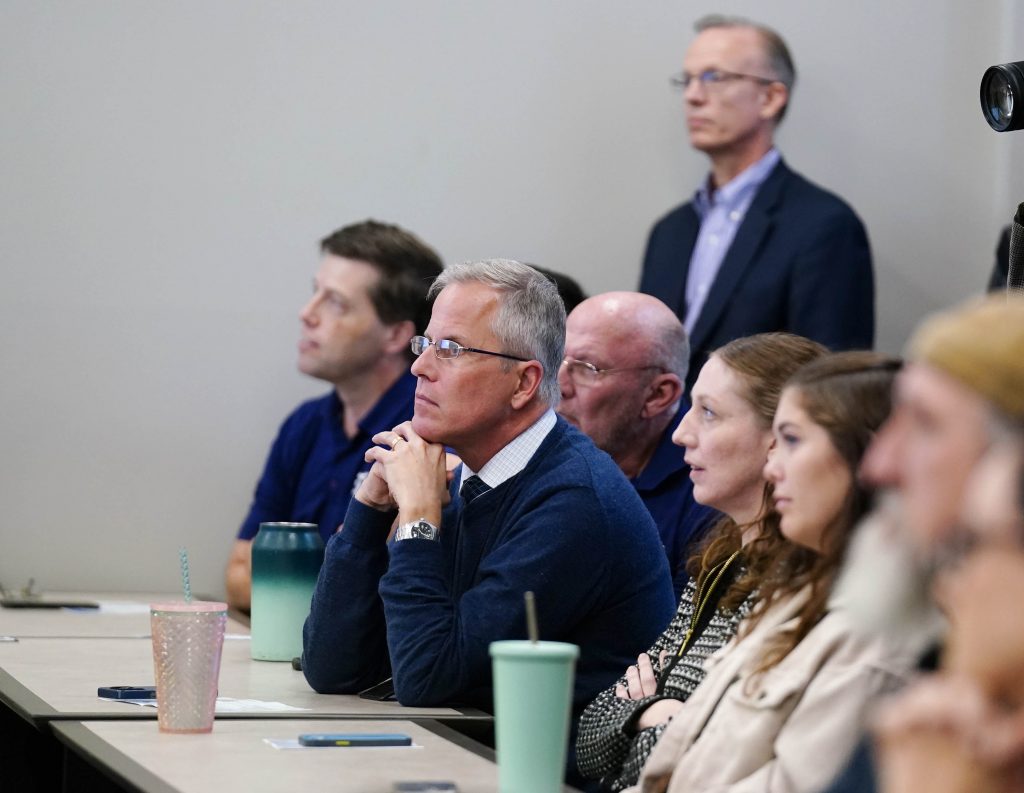
They are part of several undergraduate research projects underway at the new EPIC Lab in the College of Humanities and Social Sciences. EPIC stands for Examining Positive Psychology in Communities.
“We wanted to focus on research that looked at success factors and looked at positive psychology, as opposed to looking at deficits, and the ways psychology can help the human condition and help people flourish,” said Dr. Eric Peterson, a faculty advisor along with Dr. Magen Branham.
It falls in line with GCU’s mission of human flourishing. “Everything is from that growth perspective and improving people’s lives. Not just for themselves but for communities, which is life changing.”
The experience of doing the research is valuable for the students, added Branham. “Our students are applying for really competitive graduate programs, and they are contenders for them because of their research experience.”
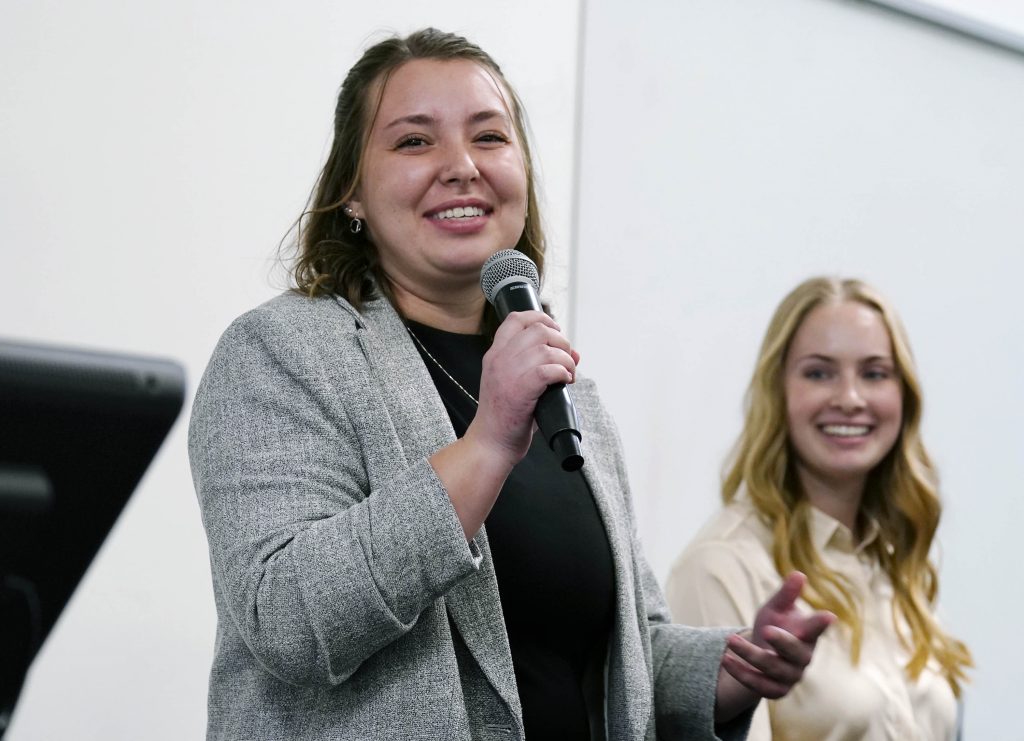
It was one of two projects presented from the lab, the other being “The Changing Lives Organization and its Effects on Self-Efficacy and Interpersonal Communication,” presented by Ashley Larson and Elizabeth Moore.
Their research examined whether college students can increase skills in self-efficacy and interpersonal communication after volunteering for Changing Lives Outreach, a GCU initiative of mostly psychology and behavioral health students who volunteer in local schools by facilitating social-emotional psychoeducation.
The group found increases in self-efficacy and interpersonal communication among student volunteers. The next step will be to publish their findings.
“We’ve got a lot of smart people,” said GCU President Brian Mueller after hearing the five presentations. “The level of confidence with which you delivered and communicated is extremely impressive.”
He said the presentations all affirmed ideas important for a Christian university to highlight, including that every person is made in God’s image and has a purpose, as shown by the group of College of Education students who presented “Unveiling Victory: A Collaboration of GCU COE & Victory Autism Academy.”
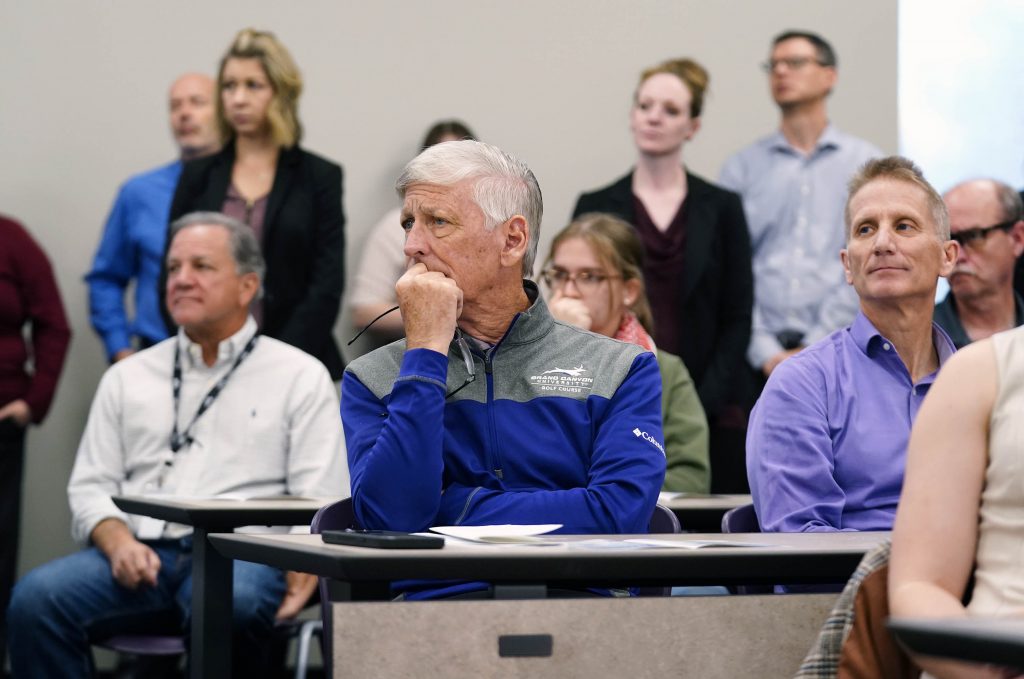
Presenters Kayla Peacocke, Parker Manitsas, Beth Donat and Kaylee Spinelli shared their experiences working with 50 Victory students. They highlighted survey ratings that showed that Victory faculty gave the students who led small group discussions, reading and writing classes and other activities a nine on a 10-point scale. In addition, 94% of GCU volunteers said they were comfortable teaching students with autism, compared to 15% before the project.
“I was working with a little boy who had a communication device. The first time I was there, I really couldn’t communicate with him; I didn’t know how to use the device,” Donat shared with the audience. “Two weeks ago, I was able to have a full conversation with him. The smile on his face when I was able to communicate with him will forever be in my heart. And it’s why I want to be a special education teacher.”
Other presentations included:
IDEA Club: Presenters Connor Vicary, Jackson Godwin and Tyler Hildebrand shared how the club turns student ideas into business success. One example was how the club helped a student use social media to increase the followers of his business accounts from 1,000 to 86,000 to build his brand. There are 100 student businesses that are part of club, and the IDEA Club Student Marketplaces have “this year alone brought over $75,000 into students’ pockets that worked with us to develop their idea,” Vicary said.
“Lessons Learned from COVID-19”: Nursing student Ruth Larson shared several published research projects from the Power Lab, led by Dr. Zachary Zeigler and Dr. Eddie Smith, that examined the effects of pandemic lockdowns on people’s health. They included a study on weight gain and physical activity during the pandemic (read the GCU News story here), the effects of physical activity on COVID-19 symptoms and the impact of mask wearing on high-intensity exercise (GCU News story).
Grand Canyon University senior writer Mike Kilen can be reached at [email protected]
Related content:
GCU News: Scholarly research on display at symposium, showcase
GCU News: Students' passion projects on display at symposium



































































